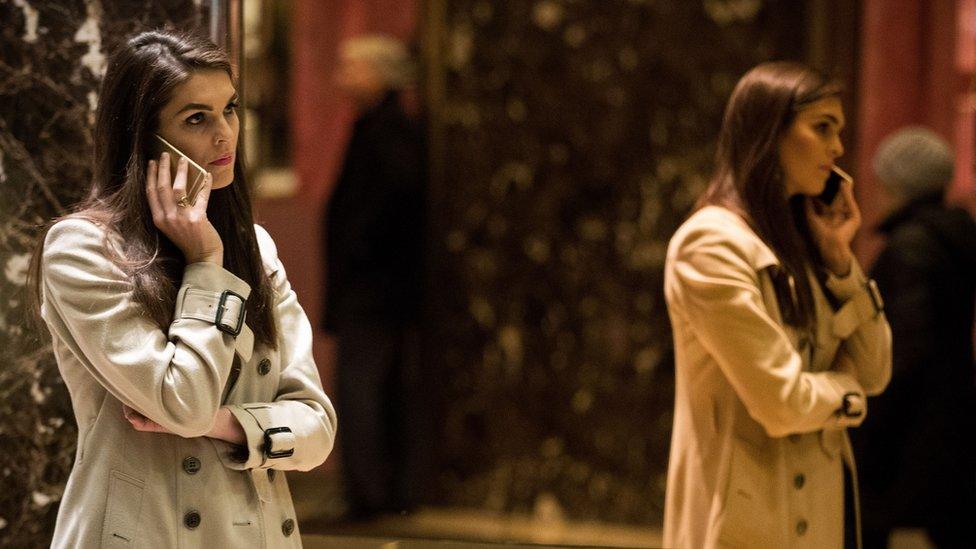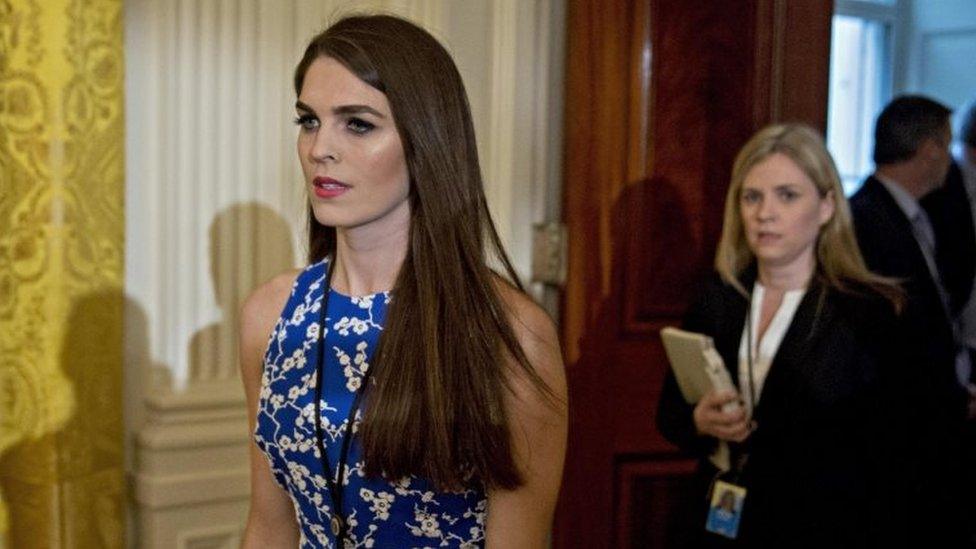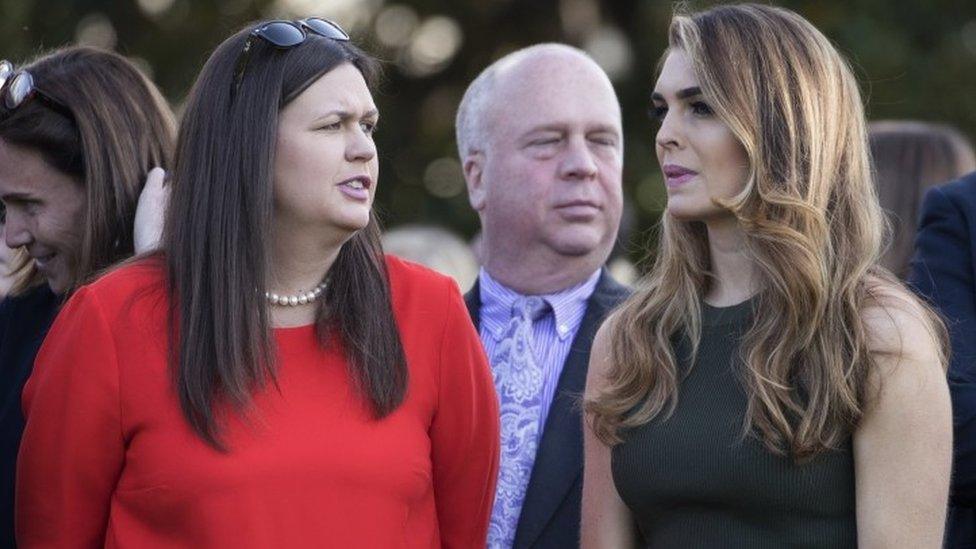Hope Hicks: How will new communications chief handle the president?
- Published

The communications office of the Trump campaign was staffed by Hope Hicks, the press secretary - and it was a disaster.
To be fair, the office was run with a skeleton staff. But reporters couldn't get calls returned, and things were chaotic. Somehow she survived.
Now in the Trump White House, a place where loyalty is often valued over competence, she's been promoted.
The president is hard on his communications staff, showing little patience when aides are not conveying messages in the way he wants.
Two previous directors - Mike Dubke and Anthony Scaramucci - departed quickly. Sean Spicer, who served as press secretary, is also gone.
In contrast, Trump has given Hicks a grace period.
She's soft-spoken, and she walks with a dancer's grace. She also has understated power.
As one foreign policy analyst told me, he spoke with her for a moment in the West Wing earlier this year, and she asked if he wanted to meet the president - then whisked him into the Oval Office.
As the new communications director, she'll act as a sounding board for the president when he considers his messaging strategy. She'll also help to decide who gets to see him.

Members of the Washington establishment have been appalled by Trump's communications strategy.
Political operatives, consultants and journalists have all spoken about the way he goes off-message, tweets madly and seems to treat his own staff with contempt.
At no stage during Trump's rise to power - or even now - has anyone in his communications office been able to manage his unruly approach to the media.
Unlike many others, Hicks understands his style. She's likely to continue working in the same manner that she has since the campaign. She stays out of the spotlight, trying to help reporters with logistics.
"She does not have an ego that gets in the way of the ultimate goal, which is the promotion of the president of the US and his agenda," says Dubke, who worked with her at the White House earlier this year.
She announced her promotion in a characteristically subtle way, describing herself on Twitter as "@WhiteHouse Director of Strategic Communications".
She tries to avoid attention, but it doesn't work. Even in the coiffed, high-heeled environment of the Trump White House, she stands out.
I've seen her with a laundry-bag-sized designer purse on Air Force One. It takes her a long time to brush her hair, which falls to the middle of her back.

Reporters say mean things about her. They complain that she's not qualified for the job, and they say she's in over her head.
It's true that she did not come from the Washington establishment or the political world. A former Ford model, she started working for Trump in 2015.
Still, she has something valuable - the president's trust. Among those in the West Wing, she's the closest to Trump and knows how he wants to achieve his goals.
That seems like a good background for someone who's handling his communications strategy. In her new job, she may not be super-sweet to every reporter she meets. But she's working for a president who's famously denounced the media, and aloofness is part of her job.
As one of the longest-serving aides to the president, she has extraordinary influence over him. Yet it's not clear whether she'll take advantage of her status and try to shape the communications strategy or simply funnel his messages to the public.
With her newfound power, will she try and change Trump - or will she let him do her job for her? As Spicer used to say: stay tuned.